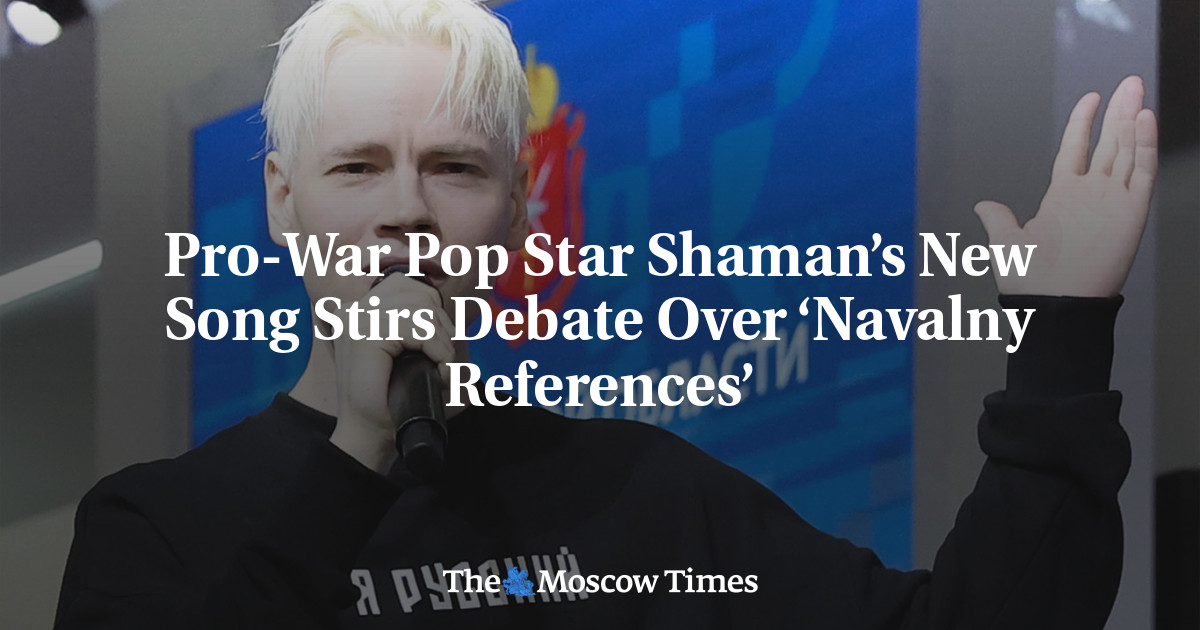
Russian pro-war singer Shaman’s latest single about a “hero who came home alive” has sparked an online debate over its potentially hidden references to jailed Kremlin critic Alexei Navalny.
Shaman, whose real name is Yaroslav Dronov, came out of relative obscurity and has become one of the most recognizable faces of Russia’s propaganda machine after the country invaded Ukraine in 2022.
The music video for Shaman’s new song “Zhivoy” (Russian for “Alive”) opens with a dedication to “all those who suffered for the truth,” followed by images of the singer sitting inside a jail cell.
Some online users drew parallels with Navalny, who has gained popular support for his anti-corruption campaigns and is now serving a 19-year prison sentence for “extremism,” charges which the jailed activist and his supporters say are politically motivated.
In response to the online speculation, Dronov denied the claims that “Zhivoy” was dedicated to Navalny.
“People’s imagination is boundless. Everyone sees what they want to see,” he told the news outlet Podyom on Sunday.
“As the president [Vladimir Putin] used to say: ‘They picked it all out of their noses and smeared it across Telegram channels’,” Dronov said.
But the 32-year-old singer’s denials did little to dissuade viewers from claiming to find hidden messages about Navalny.
The song’s release date of Jan. 18 was seen as a nod to the anniversary of Navalny’s return to Russia from Germany, where he had been treated for a near-fatal poisoning. Navalny was immediately detained after landing in Moscow on Jan. 17, 2021.
Even the lyric that translates as “you returned home with victory” was interpreted to reference Navalny since the activist returned to Russia on a jet owned by the low-cost carrier Pobeda. “Pobeda” is the Russian word for “victory.”
In his remarks to Podyom, Dronov maintained that the release date of “Zhivoy” coincided with Orthodox Epiphany.
Navalny, meanwhile, wrote Monday that authorities in the Russian Arctic prison where he is being held use Shaman’s signature song “I’m Russian” to wake up inmates each morning.
Navalny joked that the song’s use exemplified “post-irony and meta-irony” after “Kremlin propaganda persecuted me for years for taking part in Russian marches.”